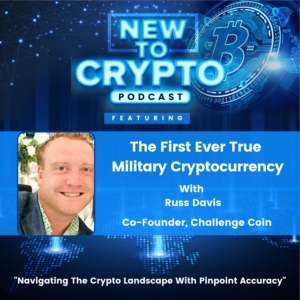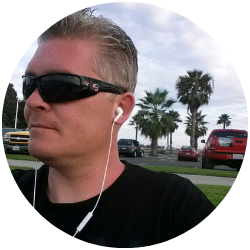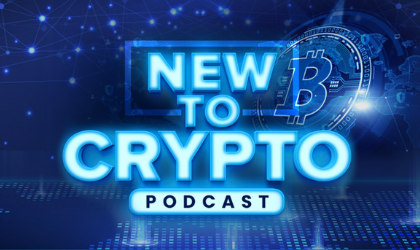An Interview With John Paller Founder EthDenver and Opolis
SUMMARY KEYWORDS
John Paller, ethdenver, ethereum, opolis, crypto, people, community, opolis, dao, events, employment, big, payroll, creating, tokens, conference, denver, token, w2, wallet, pay, projects, year, rewards
SPEAKERS
John Paller, Crypto Travels Michael
Michael 00:01
Welcome to the New to Crypto Podcast designed to guide you through the crypto landscape with pinpoint accuracy created for the new and intermediate crypto investor. Join your host Crypto Travels Michael as he takes you through the different facets of getting started and succeeding in your crypto journey. New to Crypto podcast brings you new episodes daily Monday through Friday with surprise bonus episodes sometimes on the weekend. Let me ask you, Are you new to crypto? Don’t know where to start? Are you more experienced but have questions? Then you’re in the right place. This podcast is designed for you coming at you from the Trading Center in the Lifestyle Design Studio. Here’s your host Crypto Travels Michael. Brave wallet is the first secure crypto wallet built natively in a Web3 crypto browser, no extension required. You can store manage and grow your portfolio, get NFT’s and multi chain support. Download the brave privacy browser@brave.com/newtocrypto and click on the wallet icon to get started. Hey, welcome to today’s podcast. I’m excited about today’s show. Today I have the founder of EthDenver and Opolis here on the podcast. He’s a longtime supporter of crypto and an organizer events of large crypto events actually. Welcome John Paller to the show. John, it’s a pleasure to have you here. Thanks for coming out.
John 01:33
Thanks for having me.
Michael 01:34
Hey, man, before we dive in, can you just share with our viewers and our listeners a little bit about yourself?
John 01:39
Sure. So I’m John, I’m the founder of EthDenver and also the founder of Opolis. My day to day role, you could say we refer to ourselves as stewards in both contexts. So you know, I sort of help move things along and do various things to make sure that we continue to grow and serve our purpose. I’ve been in crypto for quite a while. I’ve been working in crypto full time since 2016. So you know, it’s come a long way since I’ve sort of I mean, in crypto, you know, in crypto is kind of like dog years, it seems like you know, every year is like seven years, it’ll age you like that. But yeah, I’ve been in it for some time. So my background and in previous life is HR tech and employment systems.
Michael 02:27
Okay.
John 02:27
So that obviously dovetails well with what we’re doing over at Opolis, which we’ve even discussed previously. So yeah, yeah, that’s a little bit about me.
Michael 02:36
Okay. Yeah, we actually had you on the audio podcast earlier in the year. And we went into all about Opolis and wanted to have you back on so we could do a video here. Hey, John, can you share just a little bit about what is EthDenver for people around the world that may not be familiar? And then we’ll segue into what is Opolis as well?
John 02:56
Sure. So EthDenver is the world’s largest Web3 software development building competition. So in Web3, speak and be a hackathon. But it’s really more than that nowadays, we actually prefer to refer to it as a bidl-a-THON. So Bidl is the the meme that was birthed that EthDenver in 2018, which is become sort of the rallying cry for the Ethereum community. And so it’s like miss build Build intentionally kind of like Hodl for Bitcoin. You know, in any case, we host what’s the biggest, biggest event of its kind in the world, we just hosted 12,000 people from over 100 countries, in February in the middle of a pandemic, right. So…
Michael 03:42
Wow
John 03:43
You know, we gave out over a million dollars in total bounties and prizes. And, you know, people from literally every corner of the globe came to support it. So its purpose is really two things. It’s a good, great opportunity for the community to get together and sort of build together and just connect. And then really, it’s about realizing this future of the decentralized world. And there’s two parts to that one is again, building, it’s everything’s building-centric. So I’ll say that a lot. And then the other is just experiencing this whole Web3 movement. So we are a big on ramp, and a lot of our people who come are brand new to crypto and they’ve never seen any of this before. So then when they get to experience an NFT Art Gallery, where they get to pay for their food truck food with crypto or they get to, you know, sit and rub elbows with some of the biggest luminaries in the space, you know, like it’s pretty amazing experience and we added 100 foot LED wall you know, with with like, just crazy interactive stuff going on. Yes, it’s quite it’s quite an experience, which is why we prefer instead of conference, we prefer community innovation festival.
Michael 04:57
Okay, so it’s a multi day event. and it is in Denver I recall…
John 05:02
Yes. It’s in Denver every year. It’s we’ve done it five times. Well, one of them was virtual. But we recreated everything in the metaverse to make it feel like we were in person, but we weren’t. But we’ve done it four times in person one time, virtually, it’s always in Denver. And yeah, we’ve got a huge public private, private partnership with the state. It’s a pretty amazing effort. You know, when I say the community, it’s a community of communities. So we’ve got anywhere from the state of Colorado to, you know, brand new hatchling projects to very well established crypto projects from all over the ether sphere. So…
Michael 05:42
Wow… 12,000 People from 100 countries, it’s really grown.
John 05:46
We had 20,000 applications, and we couldn’t even like accept everybody. 20,000…
Michael 05:54
That’s a lot of people that come into Denver, or who wanted to…
John 05:58
That’s a lot of people and we originally anticipated, you know, our largest in person installation previously was about 2500 people.
Michael 06:08
Wow.
John 06:08
And like, we’re like, Okay, well, if we double that, you know, we that would be a huge year, right?
Michael 06:14
Yeah.
John 06:14
We double in size, but it went up like orders of magnitude. Were just like, Oh,
Michael 06:19
Wow… yeah, it’s speakers and different workshops, different hackathon related items with devs. And I take it, yeah!
John 06:27
600 speakers on six stages over nine days at three venues.
Michael 06:31
Nine days. Wow.
John 06:34
That whole week is sort of the… So everybody’s got their blockchain week, right? Like L.A blockchain week, New York blockchain week, Paris blockchain week. It’s like, Yeah, whatever. We prefer to focus on building. Right. So we call it Buidl week. So Buidl Week is an open source calendar. So during the week leading up to the main event, which is usually Friday, Saturday, Sunday of the Presidents Day weekend, okay. We have, you know, a tool that people can come in and put an event on the calendar, and they can do it anywhere in the city. You know, obviously, we even help try to book venues and things. There was over 300 site events that happened during Bidl week.
Michael 07:14
Wow.
John 07:16
It was bananas.
Michael 07:17
Wow.
John 07:19
300 side events all over the city, right?
Michael 07:21
Denver took over Denver, you know?
John 07:24
Oh, it did it. There’s no joke about that. I mean, there’s a the area that we’re in is called the Golden Triangle, which is where we’ve historically held the event in sort of a up and coming kind of art social district. Okay. And it was just overrun.
Michael 07:40
Wow.
John 07:41
People everywhere. I’ve been to our waiting lines, just to get into some of the venues like it was. I mean, in some ways, we feel really bad about that. Because it’s like, you know, we wanted to get as many people into these venues as we could, but some of the venues just had capacity limits, you know, you can’t fire code and stuff, you know, they’ll come shuts you down. Yeah, we actually almost got shut down one of the nights when Vitalik was doing his talk, because we had, we had enough people on the main floor of the sports castle to warrant the firewall and shutting it down. And he like, was so nice about it. He’s like, Alright, I’m gonna give you 20 more minutes, you got to shut it down. Because the whole main floor where Vitalik was giving his talk was just jam packed.
Michael 08:26
Wow.
John 08:27
Like arm to arm?
Michael 08:28
Yeah.
John 08:28
Middle of the pandemic?
Michael 08:29
Yeah
John 08:30
you know, it’s like what the…?
Michael 08:33
It has to be exciting for you to see, like, from inception in the first year, to where basically what it’s becoming, and where you have it now, you know, and the coming years?
John 08:44
Yeah, it’s, you know, it’s kind of like, I look at it more like being a proud parent. You know, it doesn’t really, you know, once it gets to a certain age, it’s not really you anymore, you know, it’s them doing their thing. You know, the community is doing their thing. Now, you know, we just spun it up and created a big tent in a blank canvas for people to come and express themselves in a way that’s meaningful for them.
Michael 09:09
Yeah.
John 09:09
And it just, it just happened to hit the right timing, the right recipe, the right culture vibe, you know, Colorado’s a big part of that, because we’re sort of a multi dimensional purple state kind of thing, where it’s like, we don’t really fit in the traditional sort of binary political action stuff. So like, we’re very crypto friendly.
Michael 09:26
Yeah
John 09:26
By nature.
Michael 09:27
Nice.
John 09:27
And so yeah, it’s been very rewarding to see it. But again, it’s mostly fulfilling to see like, how many people get value out of it? You know, it’s like, it’s not like people are like, Oh, that was cool. Let’s go to the next one. I mean, people will talk about EthDenver for months afterward. About in We hear this all the time as I’m traveling around the the conference circuit.
Michael 09:50
Yeah.
John 09:52
Oh EthDenver my favorite event of the year. It’s my favorite conference… it’s like well, it’s probably because it’s not a conference. You know, I like it because it’s Not like, you know, corporate shill stuff. And you know, the typical conference, the field stuff you we don’t charge to come from?
Michael 10:10
Uh huh.
John 10:11
You know, 10,000 people for free. We paid for everybody’s food. You know, we paid for everybody’s everything.
Michael 10:17
Wow!
John 10:17
Free swag, free food. I mean, not everything. We don’t pay for hotels and Travel. And for some people we do, actually. But for some hackers, we did several 100 actually. But
Michael 10:30
Wow.
John 10:31
It’s, it’s been it’s been a ton of fun. There’s a lot of work.
Michael 10:35
Yeah.
John 10:35
Like kids are a lot of work. And it’s like in the minute, you’re like, Why did I do this?
Michael 10:40
So how many months in advance? Do you guys start gearing up to?
John 10:44
We’re already doing it for next year
Michael 10:45
You’re already doing it for next year. And here we are in May?
John 10:48
Well, we’re in… we’ve been doing it since you know, basically early April, late March. And we have to now I mean, to plan for an event of this scale, And magnitude. It’s just, you know, not something that you can wait.
Michael 11:02
Yeah. Are you going to be able to handle even more people? Next year?
John 11:08
So we’ve had some internal discussion about this. And, you know, EthDenver has always been about really three things. It’s building, community and education.
Michael 11:20
Okay.
John 11:21
So those things really formed what we call an on ramp situation where it’s really good for new people. And, you know, those that don’t know? Well, in what else you’re gonna go? Case in point, if I’m charging $1,000 for a ticket, which is I’m not going to name names, but there’s plenty of conferences out there that are charging it for crypto, right? they’re charging between 500 and $1,000…
Michael 11:48
Yeah.
John 11:48
And they know who they are. Okay. But like, you know, if you’re gonna do that, what’s the probability that you’re gonna get newbies to come and pay that?
Michael 11:59
That’s a good point.
John 12:00
They’re not.
Michael 12:02
Right,
John 12:02
Who is it gonna be? It’s gonna be the usual suspects. It’s just traveling circuits, right? It’s all the crypto OG’s. And the crypto wealthy people and the NFT Chills and whatever it’s like, that’s cool. I’m not judging any of that. I’m just saying that they if that’s what you want, that’s kind of a different vibe. It’s different thing.
Michael 12:22
And also doesn’t get any new people. You know?
John 12:25
No, and how many students do you know that can afford that?
Michael 12:30
Yeah
John 12:30
Guess what population makes up a large constituency of our hacker population? of our builders?
Michael 12:36
younger people…
John 12:37
Students!
Michael 12:39
Yeah.
John 12:40
You know, so the combination of all that it just you have to be very flexible. So the question is, how big can we scale it while maintaining its free status?
Michael 12:52
Okay.
John 12:53
And, you know, we don’t want to scale it past the place where the building becomes overshadowed by something else. Because the building is really I mean, if you want to get into the SportDad mechanics and the Sport token and, and BuffiCorn ventures and how we’re making investments now and projects that come out of EthDenver, like we’re creating a full cycle, sort of like, you know, think of EthDenver is like demo day for like an accelerator.
Michael 13:18
Okay.
John 13:18
And then we make investments into the some of these projects that come out the back, it’s like first money in. But you know, we’ve had pool together and POAP and one inch is finalist on our stage. Right. So these are projects that in theory, we could have made investments in early days. And had we done that? Where would the community be now? So we’ve turned the EthDenver community and spork down is the kind of parent out for this. But it’s it’s a community owned thing, EthDenver’s owned by the community.
Michael 13:50
Uh huh! Nice!
John 13:52
Like I don’t, I don’t own it. You know, I’m a stakeholder, like a lot of other people. And I’m a steward. But I’m beholden to the board of stewards, and ultimately the community and making decisions about what’s best for the community. So anyway, we want to really keep it around education, community and building so like, if as long as we’ll scale it, probably we’re going to look at 20,000
Michael 14:16
Okay,
John 14:16
You know, I mean, a lot of freaking people, man, I mean, your average big conference, like most of them never get past like five or 6000. And those are big.
Michael 14:30
Yeah
John 14:30
Right. Now, we’re talking about venturing into like mega events status, like 20,000 people is like, you know, some of the bigger
Michael 14:40
Yeah
John 14:41
You know, I mean, there’s a few that are way bigger, but like, you know, I don’t know, you know, we’ve been told things like where the Super Bowl of crypto conferences where the South by Southwest of crypto conferences, whatever, we’re just trying to do us, but, you know, maintain sort of alignment with the community values and making sure that we don’t get too chilly, we are going to be implementing some, well, we had a big problem this year, which is all of our screening for applications were based on time.
Michael 15:12
Okay.
John 15:13
Not on quality, right? So if you just, you know, no, no, no, for just attending, right, so when you, when you want to come, we don’t charge but you have to apply, you have to get a ticket.
Michael 15:25
Okay.
John 15:26
So we do this, you know, because we try to, you know, have some signal and filter on who comes in who does, right, because we really want to keep it focused on building. But we had so much demand this year. It was like, you know, we had a lot of the people that we really wanted to come didn’t apply until late in the game. So like, they were at a disadvantage, right. So as a result of that, there was a lot more people there this year, that didn’t build that then in previous years. And so why were they there? What if it’s the hype train stuff, you know, they were there because like, you know, NFT’s are big, and this is big, and that’s big and hype, hype hype. I’m like, Okay, so we’re creating some gamification, that’s going to give people paths and opportunities to contribute to the community and sort of signal their support that will get them sort of a line skipping pass, they’ll be able to like, you know, get automatic access to…
Michael 16:26
Okay
John 16:26
Event, things like owning a BuffiCorn and Buidl brigade NFT. I don’t know if you saw that project. We talked about that last time?
Michael 16:33
No, go ahead.
John 16:35
So the BuffiCorn and Buidl brigade NFT project is a 10,000 PFP project similar to board APR to club or whatever, but it’s the Bufficorn, which is our spirit animal, strength to the buffalo magic as a unicorn, make babies and buffquartz.
Michael 16:50
Okay
John 16:51
So there’s 244 unique characteristics that are randomly generated per NFT. It’s been minced out, but you can get them on Open Sea or other NFT marketplaces.
Michael 17:01
Okay.
John 17:02
And essentially, only one of those is, for example, going to be one of the things that you can do to get premium ticket access to get premium access to the event. So if you don’t own one, that’s fine. You know, you can apply and you can come, it’s still free. But like if you start doing these other things like owning NFT’s, or perhaps completing some quests that we put out there that you can do certain things that are valuable to the community. Staking Sport Tokens, you know, there I mean, I’m not going to get into the under the hood on all of it. But like there’s there’s a ton of things that you’ll be able to do to kind of signal my community involvement than I get priority access. Does that make sense?
Michael 17:48
Yeah, Definitely
John 17:48
Utility! It’s about creating utility and differentiation opportunities for community members that are really serious versus those that are just kind of looky loing and you don’t really care.
Michael 18:00
Brave wallet is the first secure crypto wallet built natively in a Web3 crypto browser. What’s Web3, Web3 is freedom from big tech and Wall Street, more control and better privacy. But there’s a weak point in Web3, your crypto wallet. Most wallets are browser extensions of web to technology. That means the same old risks, app spoofing, phishing, scams and theft. Brave wallet is different. Brave wallet is the first secure wallet built natively in a Web3 crypto browser, no extension required. With brave wallet, you can buy store, send and swap assets, manage NFT’s even connect other wallets and daps. All from the security of the best privacy browser on the market. Whether you’re new to crypto or a seasoned pro, it’s time to ditch those risky extensions. It’s time to switch to brave wallet, download brave.com/newTocrypto and click on the wallet icon to get started. No, that’s that’s a great idea that you and your team have created in the community. It’s, yeah.
John 19:11
It’s been it’s been a very interesting experiment.
Michael 19:14
Yeah, I can. I can see from from the outside looking in, you know, looking into what you’re talking about. Let’s seg way into Opolis. For those that, you know, maybe didn’t hear our last episode. Can you share a little bit about what Opolis is and who had benefits?
John 19:30
Yeah, so Opolis is a really important piece of DAO infrastructure. Now it’s it’s not just useful to DAOs but it’s, it’s useful to anybody working independently, but as it relates to the crypto community, it’s very important to DAO infrastructure and DAO tooling and the future of work as it relates to DAOs and Web3 so what it is, is a it’s an employment DAO or if you prefer more Normie speak it’s a Digital employment cooperative, okay, that provides benefits, employment and shared services for independent workers.
Michael 20:09
Okay
John 20:10
Or Web3 workers, however, you know DAO contributors, whoever you want to put under the solopreneur banner, right. But essentially what it does is so typically the trade off when you jump ship from web two and go to Web3 will DAOs don’t have legal architecture, they’re just floating around the Ether. They’re paying you in crypto, right? And how does that translate to your real life where you got to pay your rent? And then you got to figure out how to get a W2 or health insurance or any of this other stuff?
Michael 20:41
Okay.
John 20:43
You’re kind of on your own, you know, And so what up…
Michael 20:47
They are peer to peer like that to the sell out some of your coins. So you can get Fiat to, to pay for some of that stuff, you know?
John 20:55
Yeah. So what we’re doing is we’re creating the bridge. So opolis is the bridge that allows somebody to be employed portably where their healthcare insurance, their payroll, their pay stubs, their W2’s, their retirement plans, follow them, not the project they happen to be serving at that time.
Michael 21:16
Okay.
John 21:17
Now, this also checks the box for the DAOs is because the DAOs is no longer have to take responsibility or foddle around with compliance around employment because the employees are doing it for themselves
Michael 21:28
Interesting.
John 21:29
Through this code…
Michael 21:30
Okay.
John 21:32
So there’s a whole bunch of legal under the hood stuff that we’re doing that basically checks all these boxes, but essentially, it checks all the compliance boxes for both the individual and the company, they happen to be providing services to notice I didn’t say employed by I said providing services, because they’re technically employing themselves now. We call this SelfSovereign Employment.
Michael 21:53
Okay.
John 21:54
So we talked about self sovereign identity, we talked about self sovereign data, we talked about all these things. Self sovereign employment is really where everything sort of aggregates, because if you think about it, my employment identity is sort of how I am relating to my commercial stuff. My commercial world. Well, if I if I quit my W2 job right now, I lose my health care, my retirement plans get frozen, you know? And then what do I do now? I gotta go get another job to find that healthcare again. Well, if I’m working, if I’m contributing to MakerDAO, and Gitcoin DAO, and Bankless DAO, all at the same time, and they’re all paying me various amounts of USDT. Let’s say, I can funnel all of that through Opolis, get a W2, get a pay stub, and get a combination of crypto and Fiat sent to me all reported and done compliantly.
Michael 22:51
Wow. Wow, that’s a game changer.
John 22:55
So then my life is kind of normal, right? I’ve got my healthcare insurance through Cigna network, I’ve got my retirement plans. I’ve got all these different things happening. But it’s it’s kind of like I’m working for somebody, but I’m just not giving up my independence. So what Opolis is done is on behalf of independent workers recreated the whole experience of employment. But not, you know, not having to give up the freedom and flexibility.
Michael 23:22
Wow, man, that’s a game changer.
John 23:25
It’s really important stuff. So when I set DAO tooling?
Michael 23:29
Uh huh.
John 23:30
So every week now, there’s a new DAO popping up. And a lot of them are asking the same questions like, Well, how do we create better engagement, you know, from our contributors? Well, maybe we need to start giving them benefits, we need to start doing this, we need to start doing that. It’s like, Oh, hold on sport. Like, you know, you start doing that you’re gonna start looking a lot like a corporation.
Michael 23:50
You’re right.
John 23:52
Okay, so just because you call yourself a DAO, you know, there’s a meme actually, Joe DeLonge. Put out there one time, he’s the former CTO of Sushi. I thought it’s hilarious. It’s a Scooby Doo meme where it’s, you know, Fred pawn the ghost mask off. And he’s got on the meme, it says, DAO. And then he pulls the mask off. And it says, regular ass company, you know, because, you know, there’s a lot of LARPing around this that goes on. It’s like, you know, look, if unless you really understand the social and mechanical and legal game design of employment, the sort of knee jerk reaction is, well, we got to hire our people. And we got to provide benefits, and we got to take care of them. And it’s like, these are all old school, paternalistic things that corporations have been doing isn’t that what we’re running from? We don’t like the paternalism and the control mechanisms and the subjugation stuff that’s gone? Like, well, how’s that going to be different if you continue to do this?
Michael 24:48
Because we’re always talking about Web3, decentralized, decentralized new intranet, etc. Right?
John 24:56
So this is decentralized employment because it’s being done through a cooperative legal framework that’s owned by the members.
Michael 25:02
Oh, I like that.
John 25:02
So it’s an employment DAO, but it’s got a legal wrapper of a CO.
Michael 25:06
Okay.
John 25:06
So we’ve just mashed it all up. So it actually works really well. But it’s a distributed power mechanism. It’s like REI for employment. Some people understand that sort of connection. It’s like, oh, cool. So at the end of the year, when there’s profits, you guys will distribute those back to the members. Yeah.
Michael 25:21
Wow. That’s cool.
John 25:23
Exactly. So for, and then there’s a whole scheme around our token-omics and the Work token, which is the community token, it’s what we call a patronage token, which is the unit of account. The token itself has no rights to profits, your membership does, but depending on how many of these tokens you own, as a member determines parada, how much the profits you get when, if you know if and when the time comes that we have profit.
Michael 25:51
Okay.
John 25:53
So there’s a reason to want these Work tokens. So then, if I’m a consumer, we have this mechanism called payroll mining, everyone’s heard of liquidity mining. But payroll mining is based on growth. So the inflation model of the community only gets triggered once we hit these milestones, these Epoch milestones for growth. And once that happens, tokens are distributed to community members that are participating in this payroll mining function between consumption, referrals and their consumption, and then staking.
Michael 26:26
Okay.
John 26:28
So all these tokens get sprinkled throughout the community based on growth. So we’re accruing each epoch at this stage 10% Total ACPV growth, which is Annualized Commons Payroll Volume. So as we grow the payroll volume, which is how we make fees to the community, by 10%. Every time we do that, it triggers the growth epoch.
Michael 26:50
Okay.
John 26:51
And then the payroll mining distribution.
Michael 26:53
Okay.
John 26:54
So, but then we’re only increasing the token supply by, you know, something like 2%.
Michael 27:01
Interesting.
John 27:02
So the growth is going up by 10%. But we’re only but we’re only releasing new tokens to the tune of like, 2%.
Michael 27:07
So, the people that had the work token prior to that are the ones that benefit.
John 27:12
Or the people who had who were really early adopters. Yeah, so all the membership, you know, the the referring members. So there’s two kinds of members, there’s employee members who are actually like running their payroll, getting their health care, do you want all that stuff? There’s coalition members, which are, you know, DAOs, organizations, individuals that aren’t employee members, but are members in support of the self sovereign worker?
Michael 27:38
Okay.
John 27:39
So they’re, they’re making referrals, they’re contributing technology, they’re doing other things as part of the co-op. They’re not consuming employee members. But there’s two other ways that you can make tokens as far as rewards go, and that’s referring new members. So, for example, Bankless DAO is a huge referring resource for our community.
Michael 28:01
Okay.
John 28:02
Huge. Okay. So they’ve got 1000s of individuals who have been referred by them.
Michael 28:08
Okay.
John 28:09
Now, Bankless isn’t a customer, Bankless DAO isn’t employing anyone, like not as a W two, not as any of that. So it doesn’t even have a legal entity, right. So Bankless DAO is, you know, compensating people or just referring people from their community who are doing various things in Web3. And when they run their paychecks and consume their health care, they’re getting also those rewards for having made that referral. And that’s in perpetuity. So as long as that member stays active in the Opolis community, they continue to stack those rewards. And then when the profits come time do, they’re actually making profits on those referrals is patronage.
Michael 28:53
Wow, man, you got a lot of layers to this. This is awesome. You know.
John 28:58
It took us it took us like three years to not only design the legal framework, but even get to be one of the tokenomics it was a slog.
Michael 29:07
Yeah, I can see, like, there’s some, there’s some layer edge to this, you know,
John 29:11
Well, if you’re if anybody’s interested in reading more about this, just go to opolis.co, scroll down to the very bottom, there’s a section called Nerd Stuff, okay. And it’s the work rewards token paper. So if you just, you know, read that paper, there’s, yeah, there’s a bunch. There’s a bunch of resources there. There’s also our off white paper, which is kind of the manifesto for decentralized in employment and self sovereign employment.
Michael 29:37
Okay.
John 29:38
There’s bunch of cool stuff. And that’s, that’s a, I would call it almost more of an academic paper. It’s sort of a vision casting manifesto type of thing, where it’s not a typical white paper with a bunch of hand wavy bullshit, you know, crypto pie chart diagrams, and all this stuff that you know, the old school white papers used to have like now this is much more It’s like it’s it’s a very long winded thesis on why we’re doing what.
Michael 30:04
And we’ll definitely have all the links on the episode Blog Posts page, you know, for today. So, is there anything else you want to share, John as to what you have going this year here in 2022 and beyond? you know, you sound I know, you’re very busy guy with, you know, everything you have going with eath Denver planning almost a year in advance for the next one. And Opolis. And, you know?
John 30:28
Well, I mean, if you’re listening to this podcast, and you’re new, which, you know, my understanding is, there’s a lot of your target audiences that are new to crypto, the first thing I would suggest is, you know, get involved with some of these communities, you know, and two, you know, as fast as you possibly can get working in Web3, you know, it is the future, if you’re on the fence, and you’re like, Well, I don’t have health insurance. Obviously, there’s, there’s a low hanging shell for me there with Opolis and things. But like, just get involved in the community. I talk to people every day, every week, that are looking over the fence going, you know, I really want to come over to this, but I’m not really sure where to start. Come to events and meet people.
Michael 31:15
Yeah.
John 31:17
Go to the booths. Nobody goes to booths at typical conferences, who wants to do that? be sold stuff. The irony about Web3 events is they’re mostly recruiting activities. They’re looking for you, they’re looking for new people and we are too, I mean, we’re looking for software developers, we’re looking for community people, we’re looking for merchandising people, we’re looking for all sorts of stuff, right? So like, come and learn. That’s I mean, that’s a big reason, a huge factor of why we keep them for free. Because, you know, we don’t want to create false barriers, you know, or unnecessary barriers for people to come in and actually learn what they need to learn.
Michael 32:04
Now, that’s a good point, you know, and in between when they’re waiting for the larger events, even locally, most major cities, there’s crypto meetups, or there’s Web3 events, you know, even local, regional ones in between the time of the EthDenver’s. And in the others, you know, so get plugged in, get connected, jump in.
John 32:25
There’s no shortage of events. There’s East New York, there’s east San Francisco happening this year. There’s consensus in Austin. There’s permission list in Palm Beach. In a few weeks, there are there’s like all these
Michael 32:42
They’re in Mexico in August 1, first one ever in Mexico City. You know, this
John 32:47
Mexico City and Sao Paulo, Sao Paulo, Brazil is. And then there’s
Michael 32:53
I love Brazil muito, I love that language. Yeah, fantastic… Man.
John 33:01
Will say brasileira?
Michael 33:03
No, no. I’m not a Brasileiro, eu tenho muitos amigos no Brazil. So yeah, I love most of them. I love the Portuguese Ta bem, Obrigado… I studied it for like, three years, you know? So you have Cariocas in Rio, or they call it Río. And then you have you know, the paolistas here in Sao Paulo
John 33:27
Paolistas in San Paolo, ha.
Michael 33:29
So this is a shout out from John tonight, and so our Brazileros all around the globe. We didn’t even plan that. We just started talking about it.
John 33:37
But now I just started talking about it.
Michael 33:39
But hey, John, it was a pleasure to have you here. And is there anything else in closing that you would like to share with you know, all of our viewers and listeners?
John 33:47
One little piece of alpha on the Opolis side. So anybody who has been sort of debating whether or not they should join the the Opolis community or if you’re looking at that, so there’s two reasons why you would join First off, if you’re working in Web3, and you’re looking for your income and just your situation to be legitimized. It’s a great reason to come, it’s community owned, there’s no sales bullsh**, it’s just easy access, the only thing you have to do is you have to have an entity, we can help you with that. In fact, we even have some specials to help you do that at no cost. The second way is if you’re looking over the fence and you’re like, huh, I really want to get involved in Web3, jump over the fence, get involved in some DAOs, whatever you got to do, you know, come to the community. We just launched a partnership with Brain Trust, which actually has a Web3 talent directory and a few other things that they’re standing up there kind of the market layer where we’re like the employment layer for this future of work stack. But we’re planning on being at 1000 members by the end of the year. So the reason why I’m dropping this little alpha is there is going to be a decrease in the work rewards and missions at 1000 Members.
Michael 34:50
Okay.
John 34:51
So get in now because the early rewards like the early adopter rewards are going to be reduced at 1000 and we’re expecting that by fall.
Michael 34:59
Ok. Oh, that’s a good good little golden nugget for all the viewers and listeners, you know, John, man, it was a pleasure to have you here and you’re the first person that’s ever been on the show twice. So, you know, we thank you for for joining us. And I look forward to seeing you in EthDenver. If I don’t see you before, then, you know,
John 35:18
Now we’ll see if for sure. And I’ll be around the conference circuit all summer. So I’ll be in Paris for sure. I’ll be in Austin, Palm Beach, New York, San Francisco, you know, I’ll be around. So. Yeah. Yeah, check it out.
Michael 35:33
All right. Hey, John. Thanks. It’s a pleasure. If you liked today’s episode, definitely like and subscribe to the podcast. Show your support and chime in here tomorrow for another special episode. Until then, make it a great day. Thanks for tuning in to new to crypto podcast. If you liked the episode, be sure to follow and subscribe. You can listen to every episode on all major platforms have an interest in being on the show or one advertising reach out at newtocrypto.io. Head over to our site new to crypto.io to access the resources mentioned in each episode. Until next time, remember to navigate the crypto landscape with pinpoint accuracy.
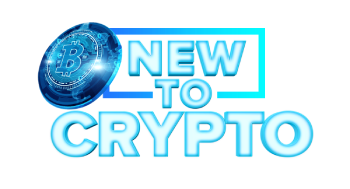
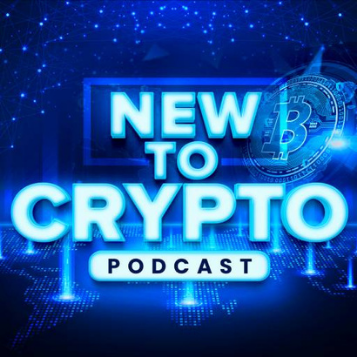







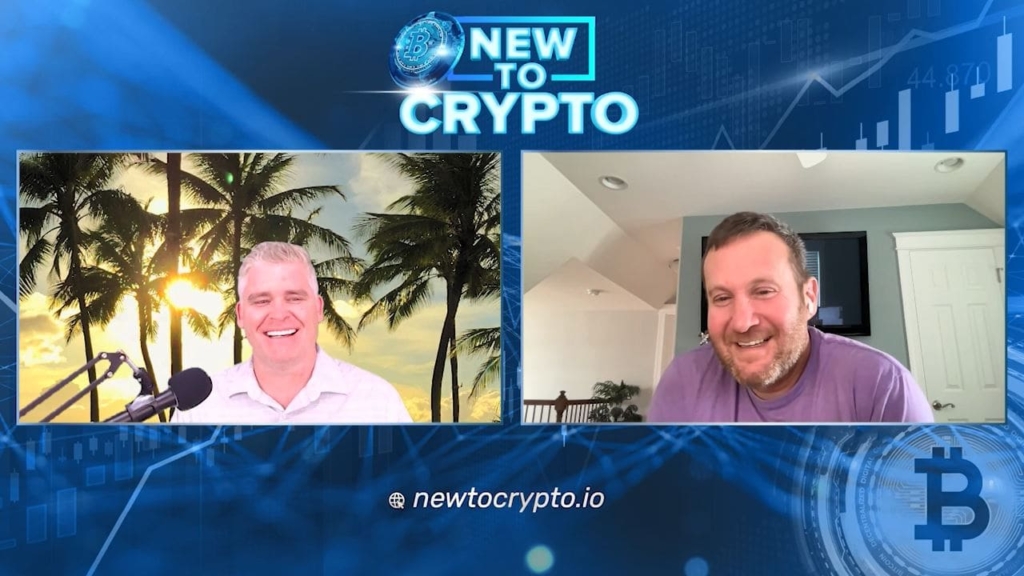
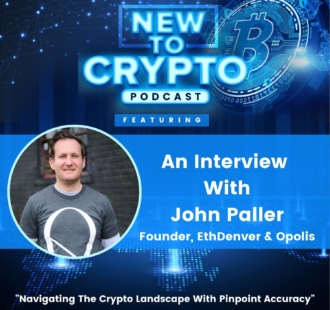

![What is SpiritSwap The Emerging DEX on Fantom [Fantom Series]](https://newtocrypto.io/wp-content/uploads/2021/11/What-is-SpiritSwap-The-Emerging-DEX-on-Fantom-Fantom-Series-300x300.png)
